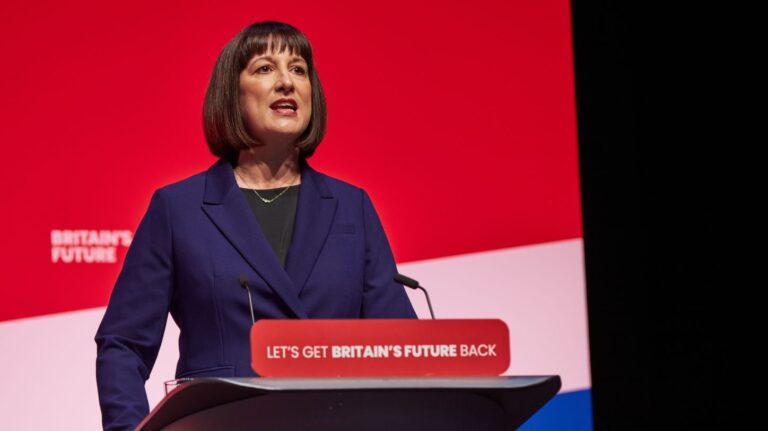In the UK’s 2024 Autumn Budget, Chancellor of the Exchequer Rachel Reeves announced an extended freeze on fuel duty.
The measure, which maintains the existing 5p per litre reduction for an additional year, drew a mixed response from industry stakeholders, with some celebrating the relief for households and businesses, while others expressed concern over the missed opportunity to advance public transport funding and emissions reduction.
Describing the freeze as “the right choice for working people,” Reeves emphasised that rising fuel costs could have placed additional pressure on commuters and logistics companies still navigating post-pandemic recovery.
Had the cut expired and fuel duty risen in line with inflation, the policy shift could have raised £3bn. “Increasing fuel duty next year would be the wrong choice for working people,” she asserted, adding that this move would avoid higher prices at the pump during a challenging economic period.
The announcement was welcomed by Logistics UK’s chief executive David Wells OBE, who highlighted its importance for the logistics sector, where fuel is a critical operational cost. “The Chancellor’s decision to freeze fuel duty for a further year is welcome news for the logistics sector,” he said.
“Nothing moves without logistics: the sector supplies our hospitals, schools, factories, shops, and homes with everything they need, everywhere, every day. The sector operates on very narrow margins – often only 2.5% – with fuel representing a large proportion of the weekly operating cost for hauliers.”
Similarly, AA president Edmund King praised the decision to provide relief to drivers facing persistent fuel price hikes. “Drivers were worried that pre-Budget scares of hiked fuel duty may end in a nightmare, but the Chancellor has pulled off the ultimate trick and treat,” he remarked.
“Since Covid and the start of the Ukraine war, ‘perma-high’ pump prices have inflicted road fuel costs that were well above anything motorists had endured before. Today’s fuel duty freeze will be a big relief.”
However, Paul Tuohy, CEO of the Campaign for Better Transport, argued that the decision missed an opportunity to redirect funds to more sustainable initiatives, such as public transport. “By choosing to keep the 5p fuel duty cut and continue freezing fuel duty for another year, the Chancellor has committed to costing the Treasury a further £4.2 billion in lost revenue.
“This revenue could have nearly quadrupled support for English bus services, benefitting millions of passengers and preventing vital services from being cut.”
On environmental grounds, Max Sugarman, CEO of Intelligent Transport Systems UK, highlighted the need for a sustainable approach as the nation shifts towards electric vehicles (EVs). He emphasised that fuel duty alone cannot support the long-term goals of net-zero emissions.
“Today, the Chancellor confirmed an extension to the freeze on fuel duty for another year, but ignored the bigger issue of how the government will offset the revenue loss from falling fuel duty as the UK vehicle fleet transitions to electric,” Sugarman said. He argued that distance-based road pricing should be introduced to support “the fairer and sustainable use of the transport network”.
Alongside the fuel duty freeze, Reeves unveiled several EV-focused incentives. These included maintaining the current preferential tax rates for EVs in company car schemes beyond 2028 and increasing the differential between electric and other vehicles for Vehicle Excise Duty starting in April 2025.
Together, these measures are expected to generate around £400m, supporting the government’s focus on electrifying the transport sector.
Anna Krajinska, UK director at Transport & Environment, describing the measures as “exactly the right move”, adding, “The future is electric, and tax policy needs to reflect that.”
The Budget also included a £2bn investment in the automotive sector, aimed at bolstering EV production and supporting the industry as it transitions away from fossil fuels.
Krajinska noted that the funding would “help secure the gigafactories that will be the backbone of the UK’s burgeoning battery industry,” which she argued is essential for growth and job creation in the green economy.
On a regional scale, Reeves highlighted funding increases for road maintenance, allocating an additional £500m to address potholes and repair deteriorated infrastructure across England, bringing the total road maintenance budget to £1.625bn.
“For too long, potholes have been an all too visible reminder of our failure to invest as a nation,” Reeves remarked. “Today, that changes with a £500m increase in maintenance budgets next year.”
Simon Williams, head of policy at RAC, supported the funding increase, noting its potential to improve road quality and driver safety. “This is positive news for drivers as it should enable cash-strapped local authorities to begin the process of improving the quality of their roads,” he said.
However, Williams warned that councils should avoid short-term fixes, advocating instead for preventative maintenance to ensure long-term benefits. “Surface dressing roads at regular intervals is a proven, cost-effective way of ensuring potholes don’t appear in the first place,” he added.
The Budget also saw Reeves announce funding for the Trans-Pennine rail upgrade and the continuation of the East-West Rail link.
Additionally, she announced an extension to the £3 cap on single bus fares through December 2025, which had previously been capped at £2 and was due to expire this year.
Achievements and innovations in urban transport and mobility will be celebrated at the third annual CiTTi Awards, which will be held on 26 November 2024 at De Vere Grand Connaught Rooms in London. Visit www.cittiawards.co.uk to learn more about this unmissable event for the UK’s transportation sector – and to book your table!





